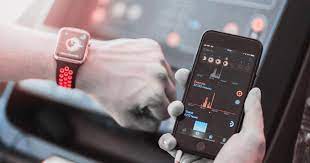In a groundbreaking study published in the New England Journal of Medicine, researchers have unveiled a novel application of smartwatches in monitoring and predicting depression symptoms, potentially revolutionizing mental health care.
Led by Joshua Curtiss, Assistant Professor of applied psychology at Northeastern University, US, the study highlights the transformative role of wearable technology, such as smartwatches, in the realm of precision medicine. By harnessing passive sensor data collected from anonymized patients at Massachusetts General Hospital (MGH), the research team demonstrated the potential of smartwatches to offer valuable insights into depression severity and symptom manifestation.
Curtiss emphasized that the study aimed to explore whether passive sensor data could effectively predict changes in depression severity or symptom severity, offering clinicians a more nuanced understanding of individualized manifestations of depression. Through the use of the Empatica E3 wristband, patients’ sleep patterns, acceleration and movement, heart rate variability, and other physiological indicators were tracked, providing a comprehensive picture of their mental health status.
The study revealed that alterations in sleep patterns, physical activity levels, and social interaction, all of which can be monitored by wearable technology, are indicative of depression symptoms. By analyzing data from digital watches and smartphones, clinicians can gain valuable insights into patients’ behaviors and daily activities, allowing for more tailored and effective treatment approaches.
For instance, clinicians can track socialization patterns by monitoring text messaging app usage, providing insights into patients’ levels of social engagement. Curtiss emphasized that passive sensor data complements clinical judgment and patient self-reports, offering clinicians a more comprehensive understanding of patients’ mental health status.
Furthermore, passive sensor data significantly reduces the burden of patient self-reporting, streamlining the process of symptom assessment and facilitating quicker interventions. By identifying patterns of physical activity and sleep disturbances, clinicians can proactively address symptoms such as fatigue and anhedonia, enhancing patient care and treatment outcomes.
While patient accounts remain crucial, Curtiss noted that passive sensor data offers a valuable tool for augmenting clinical assessments and providing a more holistic understanding of patients’ mental health. By integrating wearable technology into mental health care practices, clinicians can enhance their ability to monitor, predict, and intervene in depression symptoms, marking a significant advancement in personalized medicine.












